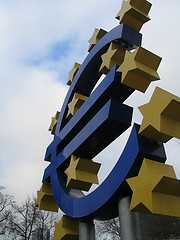
The beginning of the debt crisis: Europe and beyond
Government debt is a burgeoning issue, but the solutions are thus far a damp squib. Despite claims otherwise, the debt crisis is not one that has been solved – not even partially. Recently, European leaders saluted an agreement on settling part of Greece’s outstanding debt– largely by canceling it. Yet, European governments have merely found a way to roll debt over, with debt levels scheduled to increase further, at least until 2016. Interest rates on government bonds should increase correspondingly – hence the rating agencies’ downgrades. Unless we encounter solid growth throughout Europe, we are heading toward further turmoil. Far from attempting to be pessimistic, I solely seek to reflect on the reality of the situation and what it may entail for the future. What leaders haven’t …

On the line: in Romania, mining brings foreign investment at a cost
Many people instantly associate the ‘resource curse’ with images of African blood diamonds and mining-induced population displacement in Latin America. Few think Western countries are susceptible to such problems. But Romania, and other countries in Eastern Europe, are experiencing their own form of the paradox of plenty. Since the fall of communism Romania remains economically weak. Severely affected by the global economic crisis, its GDP fell more than 7% in 2009, forcing the Romanian government to request a $26 billion IMF emergency assistance package. Following this, the Romanian government adopted drastic austerity measures, resulting in a further 1.3% GDP contraction in 2010. Things are looking better since then; the economy strengthened in 2011. But Romania still lags behind its more …
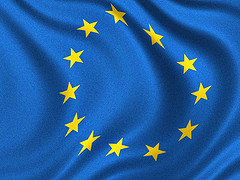
What Future for a Greece in Crisis?
An early spring Sunday afternoon in Athens finds tourists and Greeks alike chattering away in cafes and on terraces soaking up the sunshine. But a walk around the centre soon reveals boarded up shops and buildings – many from closures, some from arson attacks at demonstrations this February and earlier. By the famous ‘neo-classical trilogy’ of buildings comprising the National library, Academy of Greece and University of Athens, you can see drug-users injecting on the pathways. It is all part of the visible face of the deep social, political and economic crisis that is battering Greece. Economists and other pundits continue to argue over whether the second bail-out deal agreed at the end of February will be the last and …
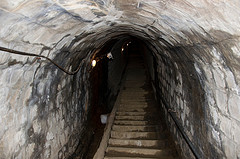
Romania’s Rosia Montana Mining Project: another example of the policy pitfalls of resource extraction
On January 28, a freezing day in Bucharest, hundreds of Romanian citizens protested against a government-approved gold mining project in Rosia Montana by a Canadian corporation, Gabriel Resources Ltd. It was not the first protest against the project: as I mentioned in a previous post, anti-governmental sentiment has swept the country since mid-January, and the row over Rosia Montana is a key issue. But despite the protesters’ warnings about the environmental, cultural and economic consequences of the project, Romanian authorities seem disinterested. The project’s opponents criticise the use of cyanide (a common technique used to leach gold from extracted material) which would have a devastating and irreversible impact on the region’s biodiversity. Moreover, the mine would lead to the destruction of over …

Remembering Manuel Fraga – politician and guardian of Spanish conservatism
Manuel Fraga Iribarne, who died on the 15th January (at 89), was a lion of modern Spanish conservatism. Born in 1922 in a small Galician town, he was the son of Spanish immigrants who had spent a year working in Cuba. His mother was a French-Basque teacher. In his early academic career he excelled in degrees in law, politics and economics and passed several of the most competitive exams for recruitment in Franco’s Public Administration before becoming a professor of state theory, a lawyer to the Congress and a diplomat. Highly cultivated, prolific and hardworking, he wrote approximately 80 books on history, politics and law. His encyclopaedic essay ‘La crisis del Estado’ (The State’s Crisis), influenced by Carl Schmitt, is arguably …
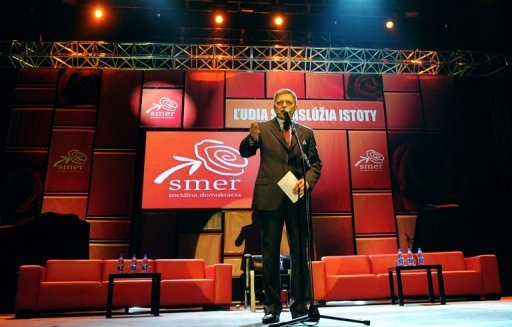
Slovakia’s election: another majority government from a proportional electoral system
On Saturday 10th March 2012, Slovakia joined the small but growing club of European countries that elected a majority government despite using a proportional representation system. The centre-left Smer party, led by Robert Fico, won 86 out of 150 seats with 44.9% of the vote. Although it was predicted that Smer would win the election, even Fico himself was surprised by the scale of the result. Since the eurozone crisis started to bite, strong anti-incumbency sentiments have regularly produced extreme results. In Hungary, Fidesz won more than a two-thirds majority in parliament in 2010 with 68% of the popular vote. In Scotland, a proportional electoral system unexpectedly produced a majority government in 2011, when the Scottish Nationalist Party (SNP) won 69 out of 129 seats with 45% of …
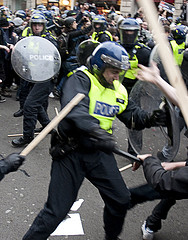
Looking back at the London Riots — moving from macro to micro analysis
The findings that have recently started to emerge from enquiries into the riots that tore through cities across England in early August 2011 paint a picture of systematic disadvantage, ingrained tensions, and radical disjunction between societal groups. Though it has proved impossible to pin down any single unifying cause for this undercurrent of societal disquiet, there is a strong implication that in the absence of concrete policy proposals to mitigate the riots’ causes and effects similar events are likely to take place again — possibly even in the near future. Though at the moment it is too early to provide much more than a diagnosis of ‘what went wrong’, I believe that the prevailing narratives about the riots have ignored …
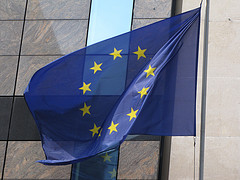
Low Key EU Summit: Tired Europe mired in crisis and recession or rebounding?
As 25 of the EU’s 27 member states signed the fiscal treaty designed to put a line under the euro crisis on a grey and misty Brussels morning, the mood at the summit was low key and low energy (the UK and the Czech Republic the two non-signatories). Politicians and officials alike did their best to spin that the crisis was past. French President Nicolas Sarkozy at his press conference, insisted ‘ we are turning the page on the financial crisis’ and that Europe had shown how fast it can move, bringing the treaty in just three months after the idea was launched at the December summit 3 months before. But Sarkozy himself looked tired and pale, rather than his …









